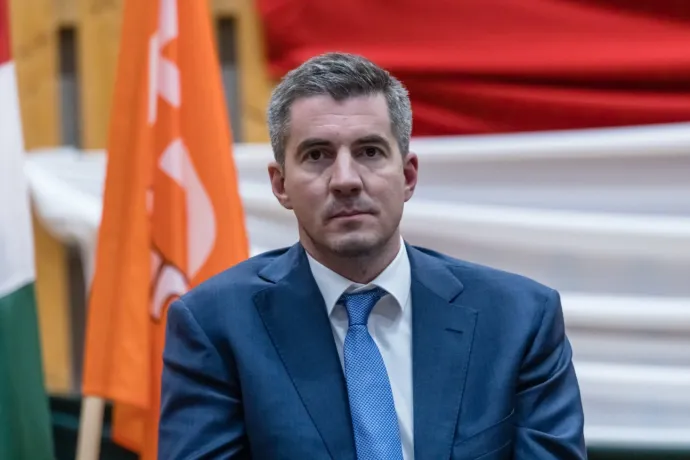
According to Máté Kocsis, the leader of Fidesz' parliamentary group, it would be good to know why Katalin Novák pardoned Endre K., who covered for the pedophile director of the Bicske children's home, and it would be worth discussing this at some point, but right now, the task of Parliament is to ensure that this does not happen again – MTI reports. He added that the Fidesz parliamentary group supports Viktor Orbán's proposal to amend the Fundamental Law.
According to Kocsis, the debate that has developed in Hungary over the past few days makes it clear that in the future, it shouldn’t be possible to considered whether or not such an offender should be granted clemency, but instead, granting clemency to someone like this should be ruled out and made illegal altogether.
No one is disputing the legality of the President's decision to grant clemency, but it is necessary to understand what the moral basis for this decision was, because this is at the root of all the criticism which has arisen and for which there is a basis. The Presidential Office has repeatedly defended Ms Novák by pointing out that the law does not oblige the President to justify decisions to pardon.
Kocsis added that the amendment to the Fundamental Law tabled by the Prime Minister on Thursday must be adopted because it complements the child protection system, making sure that in the future, all offenders will know that if they commit a crime at the expense of children, they will not be eligible for a presidential pardon.
“So there is no escape, no pardon, if you like, and no excuse for such acts. They will not be able to get away with it, even if the president would grant them a – controversial, but legitimate – pardon.”
– the politician stressed, adding that this loophole on child protection measures had to be closed.
“I think it's a clear line, a red line if you like, that people should not cross, and it is something which parents are trying to enforce with their own means, but the state also has to do so, which is why we have to introduce tougher legislation.”
– the Fidesz parliamentary group leader said, adding that since the decision to pardon is justifiably controversial, this option needed to be removed from the President's scope of authority in order to ensure that such a controversy never occurs again.
He believes that this shouldn't have occurred, regardless of what the considerations were.
The proposed amendment to the Fundamental Law could be adopted by the second half of March. While it will not affect the situation retroactively, it will be applicable to pending cases and future requests for clemency.
The case has indeed generated much controversy, with opposition parties even calling for the President's resignation. MSZP initiated establishing a parliamentary committee which would review the ministerial preparation and the countersigning practices of the individual clemency requests presented to the President.
Referring to a ruling of the Constitutional Court from 2007, MSZP wrote that Judit Varga, who was justice minister when the clemency application of the deputy director of the children's home was submitted, was not obligated to accept and countersign the petition, but Varga did, and therefore – according to the opposition party – the political responsibility lies with the government.
"The level of public outrage we have seen in recent days clearly indicates that there are systemic problems with the practice of the right to pardon. Regardless of whether Judit Varga, then Minister of Justice and the future EP list leader of Fidesz, exercised the countersignature without being familiar with the case or made the decision knowing the nature of the crime, her political responsibility is unquestionable!" – the party said in a statement.
When the Minister of Justice refers a pardon case to the President, he or she is entitled to make a recommendation, but the President is not bound by it. The President decides on his or her own, but the decision must be countersigned by the Minister. Thus, it is a semi-symbolic power, as no one can be pardoned without the consent of the government.
That Varga and the way she is perceived is indeed important to Fidesz can be seen from the fact that opinion polls are already measuring what people think about the former minister's responsibility in the pardon case.
Call Express – which Népszava has previously described as "using a poll to spread suggestions favourable to Fidesz by anonymous operators" – has already been asking people by phone for their opinion on the following (among others):
- “Have you heard that last April, President Katalin Novák pardoned the former deputy director of the children's home in Bicske?”
- “Have you heard that when she was Minister of Justice, Judit Varga also had to countersign the pardon decision?”
- “In your opinion, can Judit Varga as Justice Minister, be held responsible this case?”
Respondents were also asked whether they had a favourable or unfavourable opinion of Viktor Orbán, Judit Varga and Katalin Novák.
For more quick, accurate and impartial news from and about Hungary, subscribe to the Telex English newsletter!